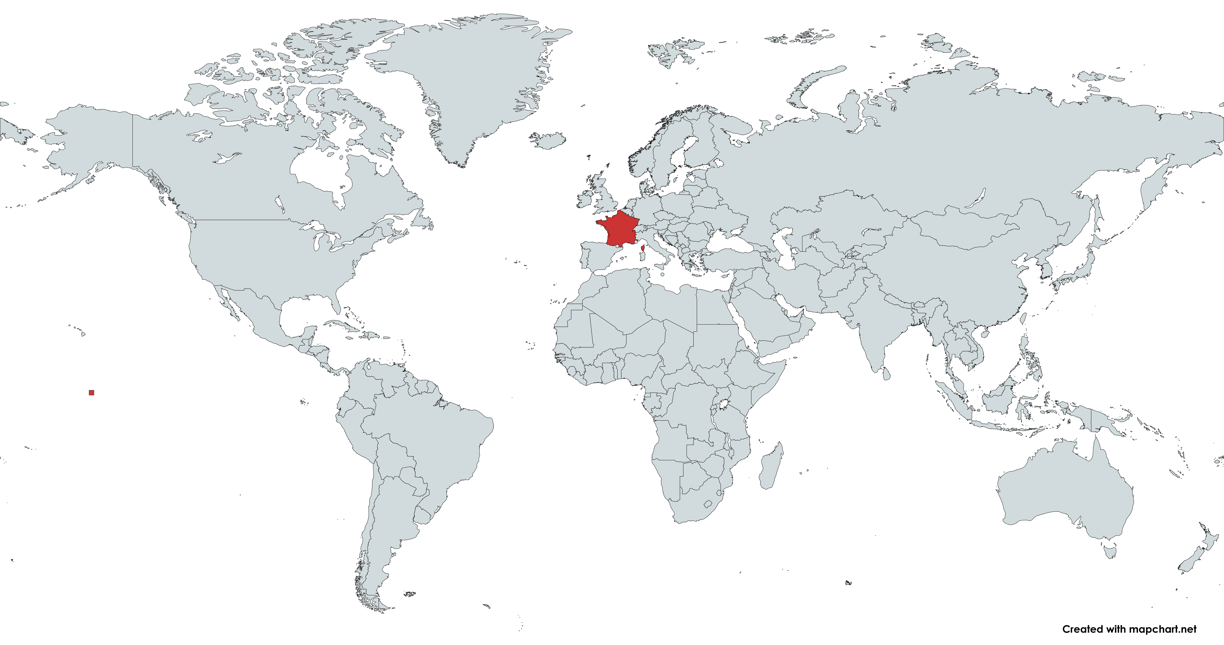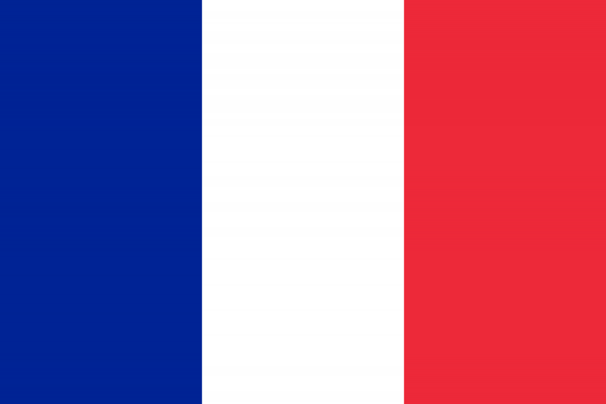
Paris, France
To dance around plaster of paris.
Memory Aid: France rhymes with dance. So imagine a French man dancing around the Eiffel tower made from plaster of paris.
Association: Associate dance and the Eiffel tower.


Where in the World is France?


The Flag of France


What to do and where to visit in Paris
Paris, the City of Light, offers a plethora of attractions and culinary delights.
Start your adventure at iconic landmarks like the Eiffel Tower and the Louvre Museum, where world-renowned art and stunning architecture await.
Stroll along the charming streets of Montmartre, visiting the Sacré-Cœur Basilica and enjoying the vibrant local art scene.
For a taste of authentic Parisian cuisine, indulge in classic dishes such as coq au vin and ratatouille, or savor buttery croissants at a quaint café.
Don't miss the chance to enjoy a leisurely picnic by the Seine River with fresh baguettes, cheese, and pastries from a local boulangerie.
As the sun sets, experience the magical atmosphere of the city with a nighttime Seine cruise, offering breathtaking views of illuminated landmarks.
Paris promises a perfect blend of cultural experiences and gastronomic adventures, making it an unforgettable destination.
What Countries border France?
France shares its borders with several countries, including Belgium to the north, Luxembourg to the northeast, Germany to the east, Switzerland also to the east, Italy to the southeast, Spain to the southwest, and Monaco and Andorra in the south.
Throughout history, many of these neighboring nations have experienced conflicts with France, particularly during the various European wars and territorial disputes. For instance, France and Germany have had a tumultuous relationship marked by significant conflicts, most notably the Franco-Prussian War and both World Wars.
Similarly, France and Spain clashed during the Napoleonic Wars, while Belgium has faced occupation during World War I and II.
Despite these historical tensions, many of these borders now represent cooperative relationships within the framework of the European Union, focused on mutual stability and economic collaboration.
History & Politics of France
France has a rich and complex history that has significantly shaped its political landscape and its relationship with Europe.
Since the establishment of the Frankish Kingdom in the 5th century, France has been a central player in European politics. The nation transitioned from monarchy to republic multiple times, marked notably by the French Revolution in 1789, which spread ideas of liberty and equality across the continent.
Throughout the 19th and 20th centuries, France engaged in various conflicts, including the two World Wars, which forged deeper ties with other European nations.
The founding of the European Union in 1993 further solidified France's commitment to a united Europe, emphasizing cooperation, economic integration, and shared democratic values.
Today, France remains a key architect of European policy, balancing national interests with the broader goals of unity and stability within the continent.
Is it safe to visit Paris?
Visiting Paris, France, can be a delightful experience, but it’s essential to consider safety precautions to ensure a smooth trip.
While the city is generally safe for tourists, like any major urban destination, it has areas where one should be more vigilant. It’s advisable to stay aware of your surroundings, especially in crowded places and tourist hotspots, where pickpocketing can occur.
Using reputable transportation options, avoiding poorly lit streets at night, and securing your belongings can further enhance your safety.
Additionally, being informed about any local advisories or events that may affect your travel plans can help you navigate the city more confidently.
Ultimately, with basic precautions and awareness, you can enjoy the beauty and culture of Paris while minimizing potential risks.
Explore
Learn World capitals through images and associations.
Learn
© 2025. All rights reserved - Air Mobility Services
Terms of Use


